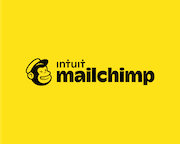Looking for the best brand management software? Our comprehensive buyer's guide covers top options, features to consider, and more. Discover your perfect solution today!
Brand management has become a crucial aspect of every organization's success. With the rise of social media and the ever-evolving digital marketplace, it has become increasingly challenging to maintain a consistent brand image across all channels. As a result, companies are turning to brand management software to help them streamline their brand management efforts. If you're on the lookout for the best one for your organization, there are a few things you need to consider. In this comprehensive buyer's guide, we'll take you through everything you need to know to make an informed decision, from the benefits to the key features to look for, and much more.
What is brand management software?
This refers to a suite of digital tools that help businesses manage their branding and marketing efforts, including brand assets, messaging, campaigns and social media. Through this software, companies can ensure consistent messaging and visibility across multiple channels, enhance brand recognition, and streamline internal workflows.
The following are some common use cases for this solution:
Asset management
One of its primary uses is to manage all of a company's digital assets from a central repository. This typically includes logos, images, videos, and other design elements. With the solution, companies can quickly access and update their assets, and maintain brand consistency across multiple applications and channels.
Marketing campaigns
With this application, businesses can plan, execute, and track the success of marketing campaigns. This includes analyzing the effectiveness of different messaging and channels, as well as tracking campaign spend and ROI. These tools can also help businesses automate certain tasks, such as setting up email campaigns or sending out social media posts.
Social media management tool
Social media has become one of the most important channels for businesses to connect with their customers. Brand management software can help companies monitor and manage their social media presence across different platforms, schedule content to be posted at a certain time, and engage with their audience.
Workflow management
By streamlining internal processes through this tool, companies can reduce the amount of time and resources needed to create marketing collateral and launch campaigns. Workflow tools allow businesses to assign tasks to team members, track progress, and ensure that deadlines are met.
Brand management software is used by a wide range of companies, including large corporations, small businesses, and non-profit organizations. Any company with a strong brand identity and a desire to maintain consistency across multiple channels can benefit from these tools. In particular, a brand management app is ideal for companies with multiple offices or locations, or those with complex marketing campaigns that require collaboration across different departments.
What advantages does a brand management system offer?
Brand management software is an essential tool for businesses that want to establish a strong and recognizable brand across multiple channels. With the proliferation of digital marketing channels and social media, the need for effective brand management has never been greater. Here are some of the key benefits of using this technology:
-
Consistency: One of its most important benefits is that it ensures consistency across all brand touchpoints. By establishing clear guidelines and ensuring that these guidelines are followed, businesses can ensure that their brand remains consistent and recognizable across all channels, from social media to print advertising. 77% of marketers stated that they harness experiential marketing as a crucial part of any brand’s advertising strategies.
-
Efficiency: Brand management software can help businesses streamline their branding efforts and speed up the process of creating marketing materials. With centralized access to brand assets, such as logos, fonts, and images, marketing teams can quickly create new content and campaigns without having to search for the right assets. Approximately 80% of marketers believe branding is the most important factor in overall company growth.
-
Collaboration: The package offers collaboration features that make it easier for teams to work together on branding initiatives. For example, team members can share feedback and make edits to brand assets in real-time, which can result in faster turnaround times and better results.
-
Brand monitoring: It can also help enterprises to monitor their brand online, including social media mentions and reviews. By staying on top of what people are saying about their brand, businesses can quickly respond to negative feedback and address any issues that arise.
-
Data-driven insights: Finally, brand management software can provide businesses with valuable insights into how their brand is performing across different channels. By analyzing data on customer engagement, brand sentiment, and other metrics, businesses can make informed decisions about where to focus their branding efforts and how to optimize their marketing campaigns.
If you want your business to establish a strong and recognizable brand across multiple channels, brand management system is a must-have tool. With its emphasis on consistency, efficiency, collaboration, brand monitoring, and data-driven insights, it can help you build a powerful brand that resonates with customers and drives organizational advancement.
10 key features of brand management software
Brand management software is a powerful tool that helps businesses manage their brand consistently and effectively. It is integral to any company that values its brand image and wants to maintain a competitive edge. Here are 10 advanced features of this program:
-
Brand guidelines management: This feature ensures that your brand guidelines are accessible to anyone who needs them, while also guaranteeing all usage is in line with your brand guidelines.
-
Asset management: With this element, you can have your brand's assets like logos, images and videos in one centralized location, making it easy to access and share across different departments.
-
Approval workflows: With this additional feature, you can easily request approvals from relevant stakeholders and ensure your marketing campaigns are accurate and consistent.
-
Social media management: This function enables you to manage all your social media channels on a single platform while ensuring that your brand messaging is consistent and on point.
-
Analytics reporting: The program provides essential data and insight into the performance of your brand, allowing you to make insightful and data-driven decisions.
-
Collaboration tools: This feature lets you collaborate with your team more effectively and efficiently, enabling you to streamline various brand-related tasks.
-
Compliance management: Compliance management ensures that your brand remains consistent and legally compliant across all channels.
-
Reputation management: The application helps you track conversations about your brand online, allowing you to respond promptly and mitigate potential damage to your brand reputation.
-
Campaign management: The campaign management element enables you to create, launch, and monitor marketing campaigns that align with your brand guidelines.
-
Content management: This feature enables you to manage content from a central location, making it faster and easier to create, share and track brand-related content across different channels.
Ultimately, a brand management software automates and streamlines brand management tasks, making it easier to maintain consistent branding and enhance overall performance.
Considerations of a brand management platform
With so many solution options to choose from, how do you know which one is right for your business? Before making a purchase, here are some important factors to consider.
Features
The functions offered by different brand management software vary greatly and businesses should analyze their needs and choose one that caters to them accordingly. Some common features to look for include brand guidelines management, digital asset management, brand monitoring, analytics, and collaboration tools.
Ease of use
No matter how powerful the system is, if it's difficult to use, it can hamper adoption and waste valuable time. Look for one that offers an easy-to-use interface, intuitive navigation, and user-friendly features.
Integration
Most businesses already rely on various tools, therefore, it's essential to ensure that the brand management software can integrate with these existing tools seamlessly. Integration is also necessary to ensure a smooth workflow and avoid duplication of efforts.
Customization
A business's brand is unique, and their brand management application should reflect that. Customization options allow companies to tailor the software to their specific needs, such as branding, workflows, and policies.
Security
When it comes to this technology, security is a crucial factor. You need assurance that your brand identity and digital assets are secure. It should offer features such as access controls, permissions, and encryption.
Support
A reliable support system can make all the difference when using brand management software. Look for providers who offer 24/7 customer support, a comprehensive knowledge base, and training resources.
Purchasing brand management software requires an organization to consider its unique needs, budget, and goals. Investing time in selecting the right one can streamline the process, improve workflow efficiencies, and safeguard brand identity.
Trends for brand management software
In recent years, brand management has become increasingly vital to a business's success. As such, this industry's software trends have been evolving to keep up with the ever-changing market. One such trend that is expected to lead the way in the industry is the all-in-one platform. A centralized hub integrating all key features, including metrics analysis, team collaboration, and asset management, will simplify and streamline brand management for businesses.
Another trend that is gaining momentum is the use of artificial intelligence (AI). AI provides an unprecedented level of insight that makes it easier to predict and track customer behavior, identify competitor strengths and weaknesses, and find new markets to tap. Additionally, AI-powered brand management invites a more personalized approach to brand management, which is vital in today's experience-driven marketplace.
As we progress towards technological advancement, brand management software is likely to focus more on social media platforms and online tools. Brands must identify and address customer concerns quickly, and social media monitoring tools. Biggest brands such as Brand24 and Brandwatch, offer a way for them to do so.
Finally, the use of automation is also expected to rise. As businesses seek ways to maximize efficiency while reducing costs, automated workflows will become increasingly popular. Automated workflows will simplify repetitive tasks and free up employees to focus on more challenging and critical tasks, thus boosting overall productivity.
Conclusion
In summary, it's essential for businesses in the brand management industry to remain abreast of the latest software trends to maintain competitiveness. The outlined trends are pivotal for consideration in 2024 and beyond, urging corporations to explore and integrate suitable brand management tools. By leveraging brand management software, companies can transform their brand creation and maintenance processes.





